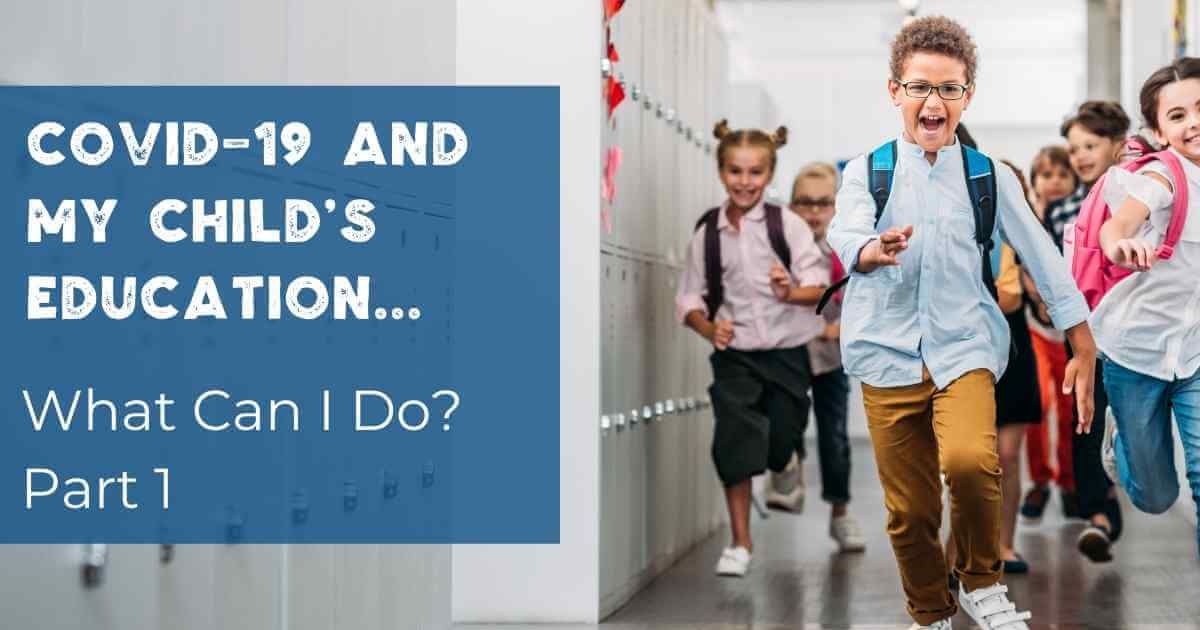COVID 19 and My Child’s Education: Part 1

It’s hard to believe that three academic years have been affected by COVID. As a teacher trying to think about advice to give to parents, it’s honestly tricky because everyone finds themselves in a different space: Some parents are single parents having to find alternative forms of childcare and supervision – getting food on the table is the ultimate priority. Others, who may have a supportive partner or more job flexibility, are able to find more time to work with their children and focus on academics. No matter the situation, this time been hard and it’s very normal to be concerned about the academic toll on our children.
If you’re feeling like the effects of remote learning are starting to add up and you’re anxious about your child’s academics, here are some actionable steps you can take to assist your child at home and lessen the anxiety. It’s my hope that these tips are helpful, no matter your situation.
- Focus on reading, writing and math
- Build a routine
- Have resources available and visible
- Set boundaries around screen-time when remote learning is completed
All parents want their child to be successful, and the fear of our child missing out on their education can be an overwhelming one. However, for young children, our stress can easily affect them and personally I feel that it’s important that in these stressful times, when routines are changing and life feels uncertain, that we not overwhelm them with “all of the things.” In early childhood, building reading, writing and math fluency are most important and if I felt my child was missing out or struggling, I would focus on these areas rather than worrying about all of the “school subjects”.
In this first post, I’ll share some tips about reading in the early elementary through middle school years. For children in the early years of their education, I would focus on learning to read and building fluency in reading. If your child is practicing early reading skills, try to spend at least 20 minutes a day working on these skills (this time period can be broken up into smaller chunks of time for younger learners and those who need focused learning in shorter doses).
Know that learning to read can be a painful process (as it takes a LOT of patience for listening parent’s ears), but hang in there … be patient and listen; know that it takes time.
If your child can read early reading books independently, have your child practice reading and rereading these early readers. Rereading helps to build skills and is beneficial and builds confidence for young readers.
Can your child read basic early readers or chapter books independently? Then set a standard reading time for about 20 minutes a day to encourage reading practice. Reading is like any skill – the more it’s practiced, the more it improves.
If your child is reading a book that is a bit challenging for them (not one they can just sit and read independently – if on a page there are more than five words they would need help with), sit and listen and when they come to a challenging word, model how to figure out new words – sounding them out, rereading the sentence to try and determine context, etc. By modeling how you figure out a new word, your child learns how to do the same. You can also ask them to summarize the plot or discuss the book with them to check in on their comprehension.
Have a struggling reader? Try partner reading. This can be done with readers at any skill level. Simply take turns reading sentence by sentence, paragraph by paragraph, or page by page. Listening to a more fluent reader helps learners to improve. If you have an older more fluent reader in the home, try and have them sit and partner read with a younger child to free you up a bit.
Have a reluctant reader? Find a good book (search Pinterest for recommended book lists by grade level or genre) and read the first paragraph or chapter with your reluctant reader. Sometimes this is all it takes to get a reluctant reader hooked on a good book. Series are also great for reluctant readers; if you can find a great series they can help to provide loads of reading material for a child that would not choose to read of their own accord or who might balk at other suggested titles.
Need more help? Your child’s teacher is an amazing resource and a wealth of knowledge. Reach out first to him or her for help as to how you can best assist your child at home if more assistance is needed.
If I can provide any help or advice, feel free to DM or email info@brightisle.com
In my next posts I’ll discuss writing and math and then move on to the other tips for ensuring academic growth during these times when our kids are in and out of their classrooms.
